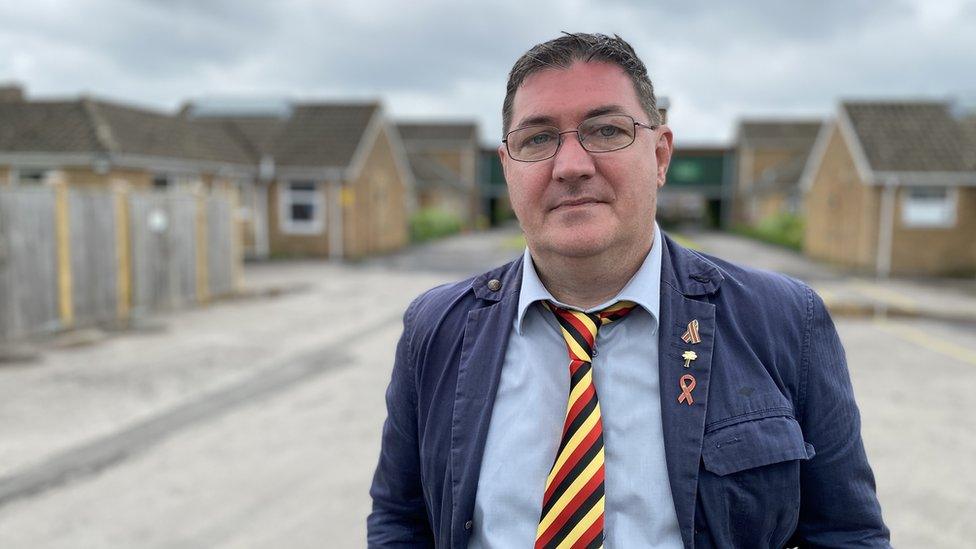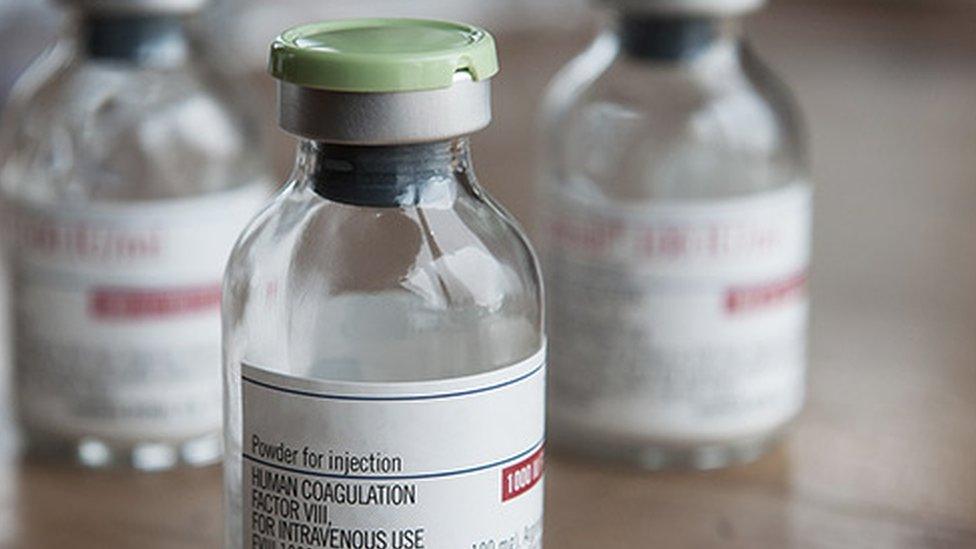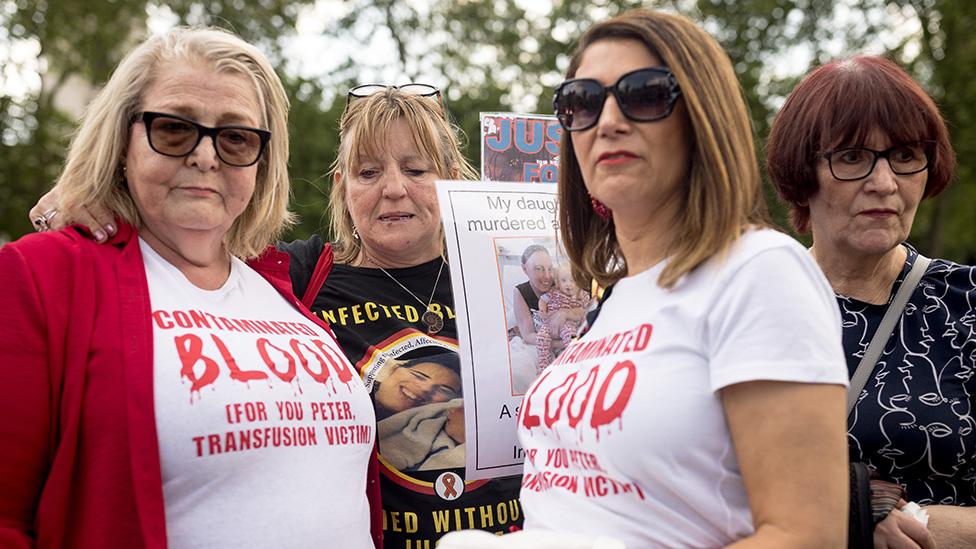Blood inquiry: Former health minister defends blood products advice on Aids
- Published

As Ken Clarke, he served as a health minister and then health secretary in the Conservative government
The government was right to say there was "no conclusive proof" that Aids could be transmitted by blood products in 1983, a public inquiry has heard.
Giving evidence, former health minister Lord Clarke said the phrase was "entirely accurate" at the time.
But documents show senior health officials thought it likely HIV could be carried in blood.
Survivors have accused ministers of misleading the public by playing down fears of infection.
The first reliable blood test for HIV was only available in March 1985, after many haemophiliacs had already been infected with the virus through a product called Factor VIII.
It's thought around 3,000 have since died of Aids and hepatitis C as a result of receiving the contaminated treatment.
'No conclusive evidence'
Evidence linking Aids with blood and blood treatments emerged slowly in the first part of the 1980s.
In 1982, a baby from San Francisco died after receiving donated blood from a patient later diagnosed with the illness. That same year the US published its first bulletin linking haemophilia treatment with HIV.
In May 1983, the first suspected infections of British haemophilia patients were reported in Bristol and Cardiff. In September that year the government published a leaflet to "discourage" those who were highly at risk of contracting Aids not to donate blood.
A quote from Ken Clarke, as he was known at that time when he was serving in the government, was used in the press release and said: "It has been suggested that Aids may be transmitted in blood or blood products, there is no conclusive proof that this is so. Nevertheless I can well appreciate the concern that this suggestion may cause."
The phrase was repeated again by him in a written parliamentary response in November 1983 and by other ministers as late as January 1984.
"Somebody, somewhere, decided that that was the best most accurate line to take," Lord Clarke told the inquiry.
"It was repeatedly used by every minister. We kept repeating that because that was the scientific advice we had until it was perfectly clear to the medics that there was in fact sufficient proof... we weren't playing down that possibility.
"It seems to me... it's a perfectly accurate description of where medical opinion was at that time."
Lord Clarke: "I wasn't the blood products minister"
Lead counsel Jenni Richards QC asked why the phrase "blood products are a likely cause of transmission of Aids" was not used instead, as it was the "mainstream view" in the department of health at that time, according to earlier testimony from Dr Diana Walford, a former deputy chief medical officer for England.
Lord Clarke said: "We go on to say it's a possibility that can't be ruled out. I don't know. You'll have to ask Diana Walford that. She certainly would have been involved in any meeting which settled on this line to take."
Ms Richards questioned if the line should have included an "express recognition" that Aids could be transmitted in this way.
Lord Clarke responded: "Not really, it's perfectly... obvious that everybody was working on that basis…. There's no secrecy about the fact there was a serious worry that people might be getting Aids from blood products."
He suggested the government needed to balance the risk of contaminated blood products with the danger of creating a "panic" which might have put people off donating blood or proceeding with an operation.
'Pretty disingenuous'
Groups representing families of those affected by the scandal claim the use of the phase "no conclusive proof" minimised the danger from blood products at the time.
"I think it's pretty disingenuous if, on the balance of probabilities, they thought there was such a link," said Jason Evans, whose father Jonathan, died of Aids in 1993.
Jason said his father was convinced by doctors to continue using Factor VIII in 1984 after being told media reports of the risk were "sensationalist" and there was "nothing to worry about".
"If the government had told the full truth of what was happening a year before, there is a very strong possibility that my Dad would be here today," he said.
Groups including the Terrence Higgins Trust and the Haemophilia Society have been heavily critical of Lord's Clarke's first two days of testimony at the inquiry, in which he has appeared at times irritated at the detailed level of questioning.
'Car crash'
At one point on Wednesday Lord Clarke apologised to the judge for becoming "exasperated" saying, "I'll have a break, grab a coffee and try to behave more reasonably. But this really is an extraordinary process in my opinion."
Ian Green, the chief executive of the Terrence Higgins Trust, described Mr Clarke's appearance as a "car crash".
Jason Evans added: "Clarke has no respect for this inquiry, or anyone involved in it. I cannot begin to convey the sense of frustration and anger the victims and families are feeling at the moment."
The infected blood inquiry is being held to investigate the scandal which emerged in the 1970s and 1980s and saw thousands infected with HIV, hepatitis or both after receiving blood product treatments or a transfusion.
It is expected to run until the end of 2022 when a final report and recommendations will be made.
Related topics
- Published21 June 2021

- Published21 May 2021

